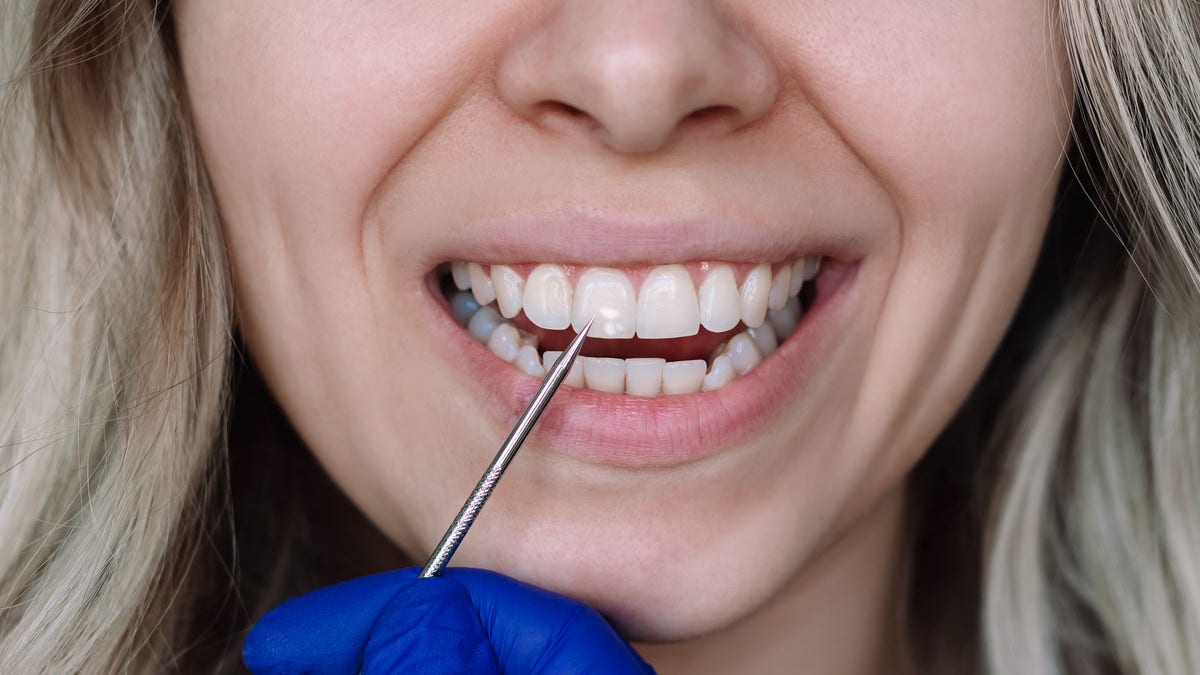After former President Trump became the second president to win a second non-consecutive term, his close advisors are already planning fresh initiatives for the new administration.
Robert F. Kennedy, Jr., who is likely to play a pivotal role in public health, recently wrote on X: “On Jan. 20, the Trump White House will advise all U.S. water systems to remove fluoride from public water.”
“Fluoride is an industrial waste associated with arthritis, bone fractures, bone cancer, IQ loss, neurodevelopmental disorders and thyroid disease,” he continued.
Some health professionals and expert groups have spoken against RFK’s comments, stating that fluoride should still be added to drinking water.
Here’s what to know about the controversy.
Why is fluoride added to water?
“Fluoride is an element that in some places can be found naturally in water and may also be added by drinking water systems to promote strong teeth and prevent tooth decay, especially in children,” the Environmental Protection Agency (EPA) told Fox News Digital in a statement.
Fluoridated water keeps teeth strong and reduces cavities by 25% in children and adults, according to the Centers for Disease Control and Prevention (CDC).

Robert F. Kennedy Jr. speaks with then-Republican presidential nominee Donald Trump at a Turning Point Action Rally in Duluth, Georgia, on Oct. 23, 2024. (Photo by Jabin Botsford/The Washington Post via Getty Images) (Getty Images)
Under the Safe Drinking Water Act, the EPA sets limits on what is allowed and what is recommended to prevent negative impacts of excess fluoride on the bones and teeth of young children.
The optimal level of fluoride concentration in drinking water is 0.7 milligrams per liter of water – equivalent to approximately three drops in a 55-gallon barrel, per the CDC.
‘IS IT SAFE TO DRINK TAP WATER?’: ASK A DOCTOR
Approximately 75% of Americans – roughly 209 million people — receive fluoridated water from community water systems, according to the above source.
Fluoride was first added to water in communities in 1945, with Grand Rapids, Michigan, becoming the world’s first city to do so — a move that the CDC has called one of the biggest public health interventions of the 20th century.
Potentially harmful effects
Many communities across the world – more than 240 – choose not to fluorinate their drinking water, reports show.
A recent review published in Cochrane Reviews found that adding the mineral to water may have only a slight benefit against tooth decay because people now brush with toothpaste containing fluoride.
The study also revealed some evidence that fluoridated water may increase the risk of dental fluorosis, which can cause white specks or a lacy appearance on the teeth.

Approximately 75% of Americans – roughly 209 million people — receive fluoridated water from community water systems. (iStock)
In 2015, government officials decreased the recommended amount of fluoride in drinking water after some children developed white splotches on their teeth, according to a previous report.
Research also shows that fluoride exposure can harm a fetus during pregnancy.
“There have been numerous studies conducted in North America linking chronic, low-level prenatal fluoride exposure with poorer neurodevelopmental outcomes in the realm of intellectual functioning, attention, executive function and neurobehavior,” Ashley Malin, PhD, told Fox News Digital in an email.
ASK A DOCTOR: ‘CAN I BE DEHYDRATED EVEN IF I’M NOT THIRSTY?’
Malin, who researches the potential effects of fluoride on brain development, is an assistant professor of epidemiology at the University of Florida’s College of Public Health and Health Professions and College of Medicine.
The National Institutes of Health’s toxicology program also found in a review earlier this year that drinking water with twice the amount of recommended fluoride levels is associated with lower IQ in children.
“Demineralization is natural due to our daily habits and food/drink consumption, and fluoride … helps tip the scale toward remineralization.”
But some associations, including the American Academy of Pediatrics, have concerns about how the study was conducted, stating that there was insufficient data to determine if the recommended levels of fluoride in water (of 0.7 milligrams per liter) had a negative effect on children’s IQs.
Experts urge healthy habits
While there are anecdotal reports from people who claim that fluoridated water has caused health issues — including bone cancer, arthritis and kidney disease — research studies to support these claims are not definitive, according to Healthline.
CLICK HERE TO GET THE FOX NEWS APP
Some experts claim there is not enough evidence to change the recommendations about fluoride.
“The concept of tooth remineralization is still at the core of this fluoride discussion,” Dr. Tien Jiang, assistant professor of oral health policy and epidemiology at Harvard School of Dental Medicine, told Fox News Digital.

Fluoridated water may increase the risk of dental fluorosis, which can cause white specks or a lacy appearance on the teeth, some studies have shown. (iStock)
“Demineralization (loss of minerals) is natural due to our daily habits and food/drink consumption, and fluoride, along with other minerals, helps tip the scale toward remineralization.”
Jiang urges people to be mindful of their home care habits, diet and regular dental visits.
CLICK HERE TO SIGN UP FOR OUR HEALTH NEWSLETTER
“To me, the focus is sometimes misplaced,” she said.
“If we all focused on more effective brushing and flossing techniques and eating and drinking habits, the majority of the dental diseases would be preventable, regardless of fluoride.”
EPA ordered to take action
In late September, U.S. District Judge Edward Chen ruled that there is enough evidence of potential health risks of fluoride in drinking water for the EPA to enact further regulations, as the AP reported.

“If we all focused on more effective brushing and flossing techniques and eating and drinking habits, the majority of the dental diseases would be preventable, regardless of fluoride,” an expert said. (iStock)
“EPA is in the process of reviewing the district court’s decision,” the agency said in a statement to Fox News Digital.
For more Health articles, visit www.foxnews.com/health
“While the decision finds a risk sufficient to trigger regulation under the Toxic Substances Control Act, it is important to note that the court does not ‘conclude with certainty that fluoridated water is injurious to public health,’ and defers to EPA’s expertise as to how to evaluate and regulate fluoride appropriately moving forward,” the agency continued.
Fox News Digital reached out to RFK Jr.’s representatives for comment.
(Except for the headline, this story has not been edited by PostX News and is published from a syndicated feed.)

